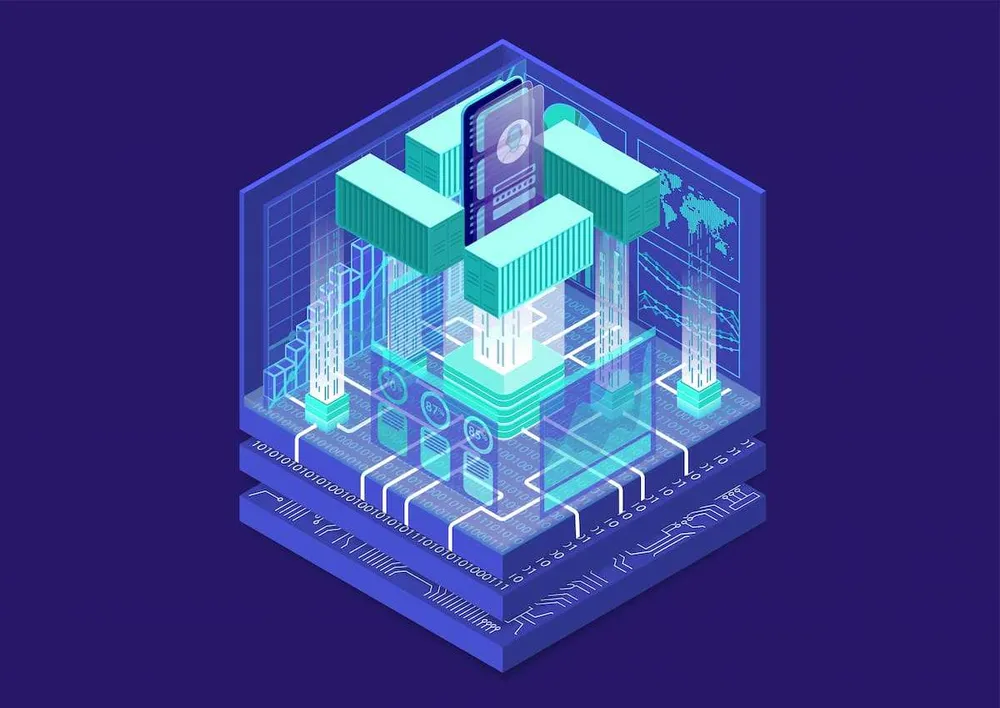keine Produkte im Einkaufswagen.
LegalRoids
How Enterprise Asset Administration Works Bmc Software Blogs
That’s perhaps why the generally, Enterprise Asset Management (EAM) system is discussed enterprise asset management definition as if it were in the same category of interchangeable with Computerized Maintenance and Management System (CMMS). EAM is best suited to be the platform, why CMMS is perhaps one application on the platform for most organizations. In today’s digital age, handbook EAM activities are potential only in small firms and organizations. Middle- and large-sized enterprises require strong options that may observe hundreds, if not tens of millions, of assets—especially in the age of IoT and cellular devices on a global scale.
Top Eam Software Options: A Head-to-head Comparison

Explore the features and benefits of IBM Maximo Manage, Health and Visual Inspection, three key functions in the suite. In order to facilitate easy data transmission and higher collaboration amongst departments, SAP EAM could additionally be linked with different SAP modules as well as external methods. CMMS and EAM systems have comparable goals and a few of the identical performance, although EAM systems provide a wider vary of performance. Mobile and multi-site capabilities and features can maximize distant capabilities and facilitate social distancing. The capacity to read meters, seize electronic signatures, and use barcodes also expands these same capabilities.
Complexity In Managing Various Assets
Any activity performed on an asset to maintain peak performance conditions is considered to be asset upkeep. Most ERP systems will allow you to categorize maintenance actions whereas organising the module (z.B., preventive upkeep, calibration, usw.). Based on the beginning date and periodicity of the upkeep activities, the system can create to-do duties for the assigned worker. Integrate property and their maintenance materials into the availability chain, from sourcing to utilization.
What Is The Difference Between Eam And Asset Management?
Support software-as-a-service (SaaS), cloud-based deployment or hybrid cloud deployment to control costs, enhance system flexibility and reduce dependency on IT. EAM helps establish a single technology system to handle virtually all asset varieties. Processes are unified and standardized for wide-ranging asset features across an enterprise. AI-powered remote monitoring delivers actionable perception into current and anticipated states of belongings. It aggregates information throughout departments and information silos, allowing for fewer, more correct alerts and enhanced decision-making. Without such a framework, you’re risking lost assets, cost overruns, inefficient usage, and even security threats.
Key Components Of An Eam Technique
It helps upkeep groups effectively manage belongings, from equipment to fleets to facilities. EAM software program offers you the instruments to plan preventive upkeep (PM), assign work orders to your team, and achieve perspective on whether your upkeep technique is working or you need to change your upkeep schedules. Leading EAM solutions like eMaint CMMS provide an intuitive, drag-and-drop PM calendar.
As a Finance Manager, you’ll need correct long-term data that will assist you resolve when’s the best time to replace or improve the asset with CapEx. All assets finally wear because of the cyclic nature of forces and stresses, and working context. Even with fundamental, rudimentary maintenance, components will fatigue in the long term. The API is a set of procedures, protocols, and functions (the software program itself) that enables a minimal of two different pieces of software or purposes to ‘talk’ to one another and share data. It is most often a type of sharing data simply one-way for updating functions, rather than both software with the ability to edit and change data in every repository.
Work orders are then sent, and a preventive upkeep intervention on the asset involved could be scheduled earlier than it fails completely. The EAM software can even present information on required alternative tools or components. With features like work order creation, prioritization, and inventory management, UpKeep streamlines maintenance operations significantly. This frustrating scene is all too frequent for these navigating the complexities of enterprise asset management. Zum Beispiel, enhancing asset information can provide finance higher info on spending, serving to align maintenance with organizational goals.Analytics are the spine of data-driven choices. Providing analytics in dashboards and stories allows stakeholders to realize insights into duties, observe maintenance KPIs, und extra.
Some ERP methods automatically create a schedule for depreciation primarily based on the depreciation technique selected by you. Assets which are required for the every day operation of your small business to generate income are considered working assets. zuletzt, property which are categorized primarily based on their resourcefulness or function fall under the class of usage. If your property are classified based mostly on their convertibility into money and money equivalents, then they’re both categorized as current assets (short-term assets) or mounted belongings (long-term assets). Put compliance on the middle of safety, making it easier to determine and get rid of hazards.
Most of the monitoring occurs through work orders and scheduled repairs or replacements, with some reports thrown in here and there. How IFS software can help you leverage digital twins not only for aviation asset MRO, however the supply chain. By helping you manage the details of maintenance, EAM could help you reduce “turn time” for shutdowns or minimize stoppages due to half stockouts or labor shortages. And it could assist you to to increase productiveness and capability, whereas helping to attenuate scrap charges and points with product quality. Letztendlich, if equipment is down or not properly optimized, that could cut back revenues, increase waste and negatively affect the shopper experience.
Research firm Gartner refers to core EAM as the essential capabilities that focus on maintaining an correct, detailed database or registry of belongings. The information embrace asset traits and histories, in addition to documents about regulatory compliance. Organizations sometimes use grasp knowledge management to ensure the accuracy of asset knowledge.
- It’s much like a CMMS but offers a a lot larger range of performance options for these asset-intensive organizations with complicated, multi-site requirements.
- The systems’ capacity to “talk” to one another makes smoother information trade potential and because of this, CMMS integration enhances overall asset management processes.
- Modern EAM software solutions, like Facilio, leverage API-first platforms, IoT-driven insights, and no-code configurations to empower organizations with the tools they should handle their belongings successfully.
As the benefits outlined above demonstrate, EAM software program can play a crucial function in optimizing the maintenance of your crucial belongings. This optimization can have far-reaching implications in your organization as a complete. Unter, we’ll take a better have a glance at both the key functions and key components of an asset administration system. CMMS, EAM, and APM techniques typically embody work order management functionalities. This permits users to create, assign, and observe work orders for upkeep duties, repairs, and inspections.
APM solutions are particularly valuable for industries with high-value belongings, such as manufacturing crops, power generation services, and transportation sectors. By implementing APM, organizations can reduce unplanned downtime, lengthen asset life cycles, and improve overall operational efficiency. It allows organizations to handle their belongings, which might include equipment, Dienstleistungen, and different physical options successfully. It achieves this integration by merging processes similar to maintenance planning, asset management, work order management, and procurement into one cohesive system. Compared to CMMS, Enterprise Asset Management is a broader system during which its scope encompasses all aspects of managing an organization’s assets throughout their lifecycle.

Without correct asset administration, things like unplanned downtime, emergency breakdowns and reactive maintenance policies can shorten asset lifecycle and in the end cost your corporation time and money. The ERP system is software program for managing day by day business processes and actions corresponding to accounting, threat administration and compliance, project administration, inventory, procurement, and supply chain administration. Enterprise asset administration involves work management, asset maintenance, planning and scheduling, provide chain administration, and environmental, well being and security (EHS) initiatives.
IBM Maximo is understood for its sophistication in asset administration, offering a hybrid cloud-based platform that combines APM solutions with complete reliability knowledge. It provides instruments for asset monitoring, predictive maintenance, and efficiency optimization. Enterprise asset administration encompasses many core capabilities however is an asset lifecycle technique — not software program. Computerized maintenance administration system (CMMS) software program is a tool that centralizes and optimizes the data integral to EAM. An enterprise asset management system (EAM) also helps general gear effectiveness by flagging poor-performing assets and utilizing sensors to extend data precision. This lets you reply proactively to requires repairs earlier than they result in failure and unplanned downtime.
Transform Your Business With AI Software Development Solutions https://www.globalcloudteam.com/ — be successful, be the first!
